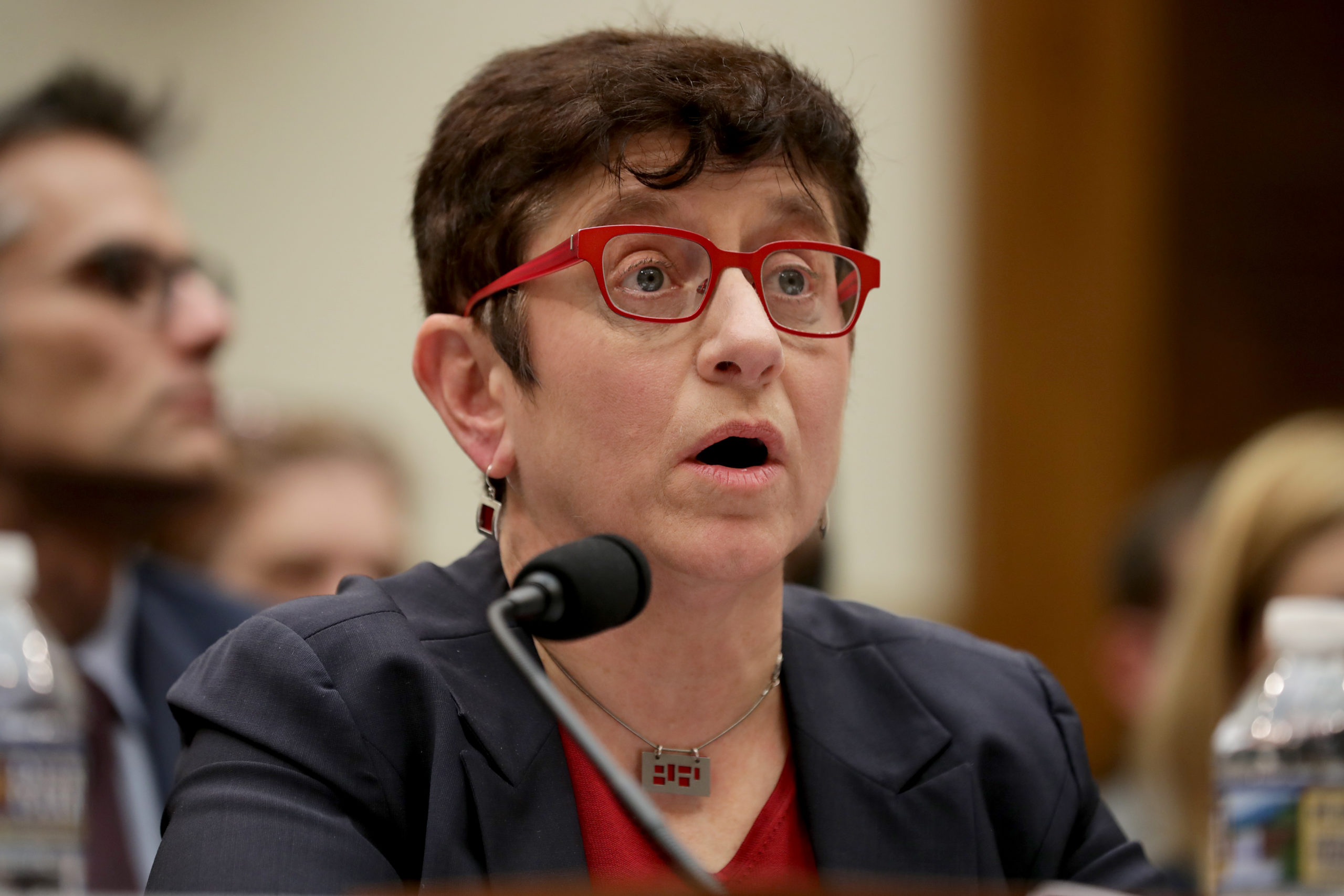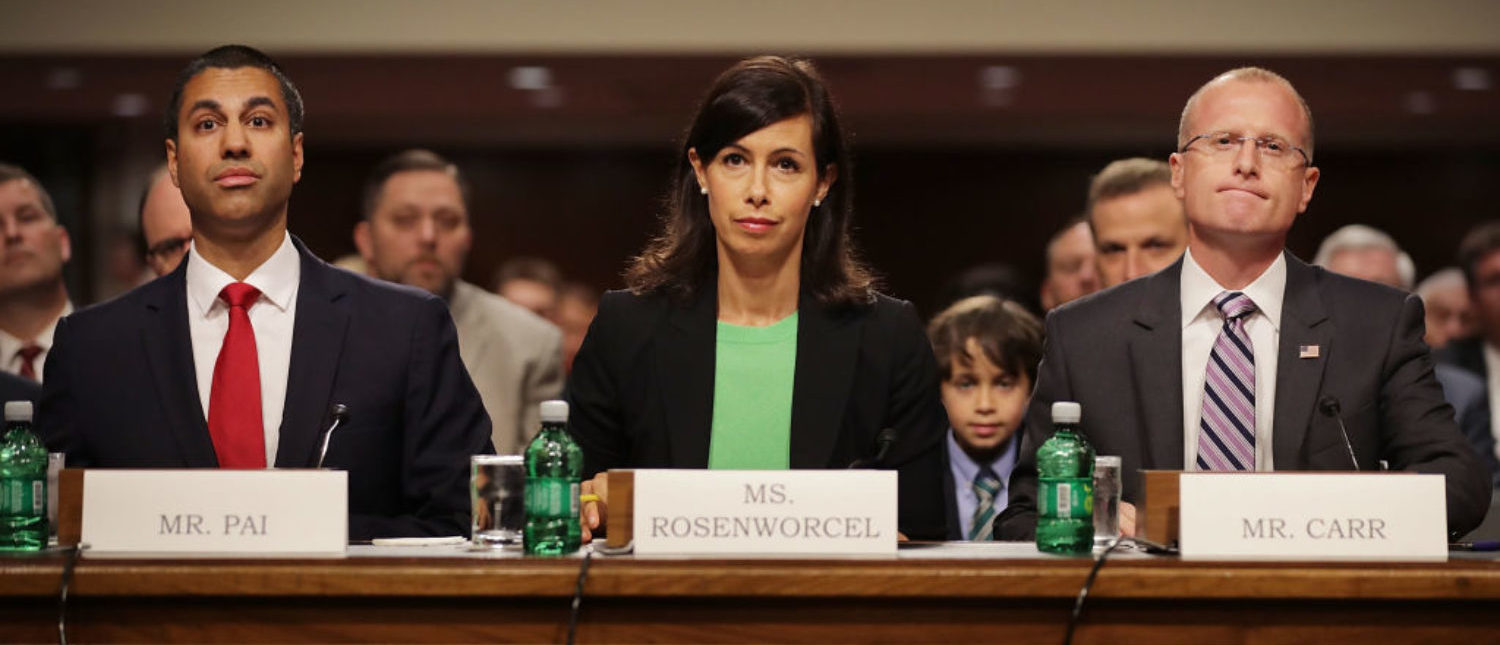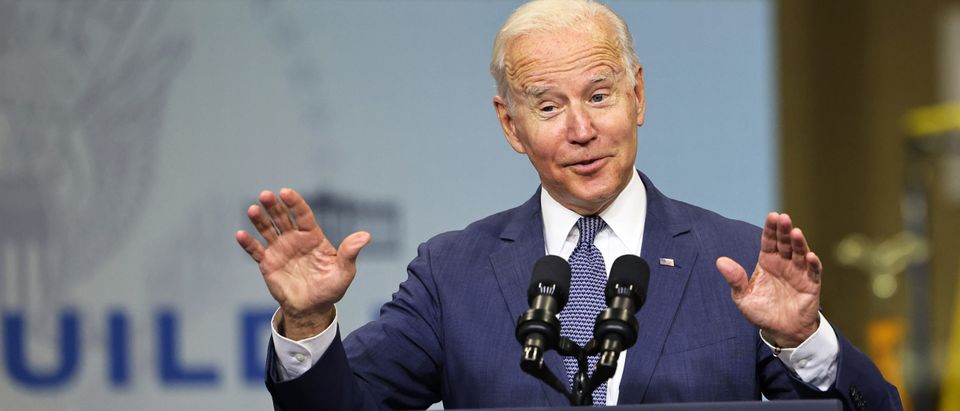- President Joe Biden picked Jessica Rosenworcel and Gigi Sohn for positions on the Federal Communications Commission (FCC) in late October, setting a course for a return to more government oversight of internet networks should the nominations be confirmed.
- An effort to return to net neutrality, or the idea that internet service providers must treat all types of online content equally, is likely given both nominees’ history, as is a push for more government-operated broadband networks.
- “I have concerns that Democrats on the Commission will once again try to expand government control of the Internet by reclassifying broadband carriers under Title II, a disastrous policy that limits innovation,” Rep. Bob Latta, Republican Leader of the House Energy and Commerce Communications Subcommittee, told the DCNF.
- Sohn’s nomination in particular could also spell a more partisan future for the FCC, as the Georgetown Law fellow has made comments disparaging Republicans and co-founded tech policy think tank Public Knowledge, which is partially funded through donations from left-wing billionaires including Pierre Omidyar and George Soros.
President Joe Biden picked Jessica Rosenworcel and Gigi Sohn for positions on the Federal Communications Commission (FCC) in late October, setting a course for a return to more government oversight of internet networks should the nominations be confirmed.
Rosenworcel, who is currently serving as acting chairwoman, was nominated to the permanent role, while Sohn, a Georgetown Law fellow and former FCC official, was nominated to fill the empty commissioner seat. If confirmed, the nominees would give Democrats a 3-2 majority in the currently 2-2 FCC.
An effort to return to net neutrality, or the idea that internet service providers must treat all types of online content equally, is likely given both nominees’ history, as is a push for more government-operated broadband networks. (RELATED: Biden To Name Jessica Rosenworcel As First Female Chair Of The FCC)
“You’re always going to see a push for more government oversight and control,” Katie McAuliffe, executive director at Digital Liberty, told the Daily Caller News Foundation. “Obviously a big thing is Title II net neutrality and rate regulation.”

Georgetown University Law Institute for Technology Law and Policy fellow Gigi Sohn testifies before the House Judiciary Committee’s Antitrust, Commercial and Administrative Law Subcommittee in the Rayburn House Office Building on Capitol Hill March 12, 2019 in Washington, DC. (Photo by Chip Somodevilla/Getty Images)
Sohn, who previously worked as counselor for former Democratic FCC Chair Tom Wheeler, has called for revisiting the Obama-era regulatory framework classifying broadband networks as common carriers under Title II of the Communications Act of 1934. This framework imposes more regulations on internet service providers (ISPs), such as preventing them from charging different rates or opening “fast lanes” offering higher speeds for certain types of online content.
President Joe Biden himself issued an executive order in July instructing the FCC to adopt Title II net neutrality rules in a bid to promote competition between ISPs.
Should the Democrats regain the majority in the FCC, Republicans worry about the impact these regulations could have on private broadband networks and efforts to close the digital divide. (RELATED: Senate Republicans Propose Making Big Tech Pay For Internet Infrastructure)
“I have concerns that Democrats on the Commission will once again try to expand government control of the Internet by reclassifying broadband carriers under Title II, a disastrous policy that limits innovation,” Rep. Bob Latta, Republican Leader of the House Energy and Commerce communications subcommittee, told the DCNF.
Latta said he was committed to working with Rosenworcel to expand broadband deployment, but cautioned against excessive government oversight.
“Since the Restoring Internet Freedom Order (which reversed the Title II classification), we’ve seen faster broadband speeds and massive private investment in our broadband infrastructure,” Latta said.

Federal Communications Commission Chairman Ajit Pai and nominees Jessica Rosenworcel and Brendan Carr prepare to testify before the Senate Commerce, Science and Transportation Committee during their confirmation hearing in the Dirksen Senate Office Building on Capitol Hill July 19, 2017 in Washington, DC. (Photo by Chip Somodevilla/Getty Images)
Moreover, Sohn’s nomination in particular could also spell a more partisan future for the FCC.
The Georgetown Law fellow has made comments disparaging Republicans and former President Donald Trump, arguing that Senate Republicans’ “ideology has overtaken their duty to serve their constituents” in reference to their opposition to a particular broadband subsidy. She described Trump as one of a group of “right-wing extremists,” and claimed the former president was “destroying the constitution.”
Sohn also co-founded tech policy think tank Public Knowledge which promotes “freedom of expression, an open internet, and access to affordable communications tools and creative works.” The organization is partially funded through donations from left-wing billionaires including Pierre Omidyar and George Soros.
The timing of the nominations may further complicate matters as Rosenworcel’s term as commissioner has already expired and she is due to leave the agency in January, unless she is confirmed as chair. This would leave Republicans with a 2-1 majority on the FCC in 2022.
Sohn, who was originally intended to be nominated to the role of chair according to multiple reports, has no such time constraints on her nomination, but is likely to be considered along with Rosenworcel, McAuliffe said.
“They’re trying to sneak through their much more progressive nominee on an expedited timeline,” McAuliffe told the DCNF. “She’s going to pull the Commission to the left.”
All content created by the Daily Caller News Foundation, an independent and nonpartisan newswire service, is available without charge to any legitimate news publisher that can provide a large audience. All republished articles must include our logo, our reporter’s byline and their DCNF affiliation. For any questions about our guidelines or partnering with us, please contact licensing@dailycallernewsfoundation.org.


